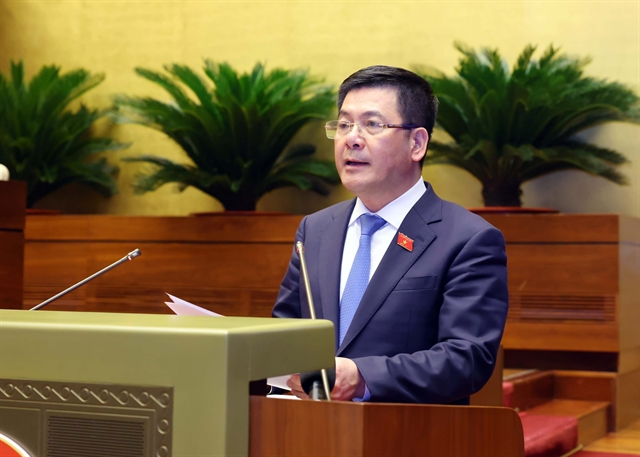Planning for nuclear power development will be synchronised with the overall electricity development plan to guarantee power supply security.

At the ongoing 8th plenary session of the National Assembly, Minister of Industry and Trade Nguyễn Hồng Diên presented the draft revised electricity law on behalf of the Prime Minister.
After 20 years of implementation, the law has many outstanding issues that need to be updated to keep up with modern times, Minister Diên said.
According to the draft, the State will hold a monopoly over the investment, construction and operation of nuclear power plant projects, in addition to strategic multi-purpose hydropower plants, and transmission grids, etc. - given that they are considered key projects related to national security.
Planning for nuclear power development will be synchronised with the overall electricity development plan to guarantee power supply security.
The investment, construction, operation, decommissioning and safety assurance of nuclear power plants must comply with the Law on Atomic Energy and other relevant laws.
Nuclear power projects must utilise modern, verified technology to ensure the highest level of safety.
Additionally, the draft also stipulates that depending on the economic and social situation of each period and specific project, the Prime Minister will establish special mechanisms to ensure the efficient implementation of nuclear power plant investment, construction, and operation.
Lê Quang Huy, Chairman of the Science, Technology and Environment Committee of the National Assembly, in assessing the draft revised law, opined that the development of nuclear was a new issue that needs further consideration.
There was also additional clarification into which fields the State would exercise monopoly over per the draft, Huy said, adding that only absolutely necessary fields should be monopolised to facilitate mobilisation of funds from other investors, reduce public investments and improve feasibility.
Price transparency
The draft law also introduces regulations for electricity prices based on a market mechanism with State regulation, aimed at encouraging the efficient use of electricity.
Electricity pricing is also being restructured to be more reasonable, gradually reducing and ultimately eliminating cross-subsidies between customer groups and regions, specifically between residential and industrial electricity users.
On this basis, the electricity pricing mechanism is applied appropriately to customer groups with high consumption and emissions, including tourism accommodation facilities and industrial production.
The Government also prioritises the development of charging stations for green transportation.
Additionally, electricity prices are ensured to be public, transparent, and equitable, with no discrimination between electricity units, guaranteeing the right to independently decide on purchasing and selling prices within the price framework and structure set by the State. — VNS





